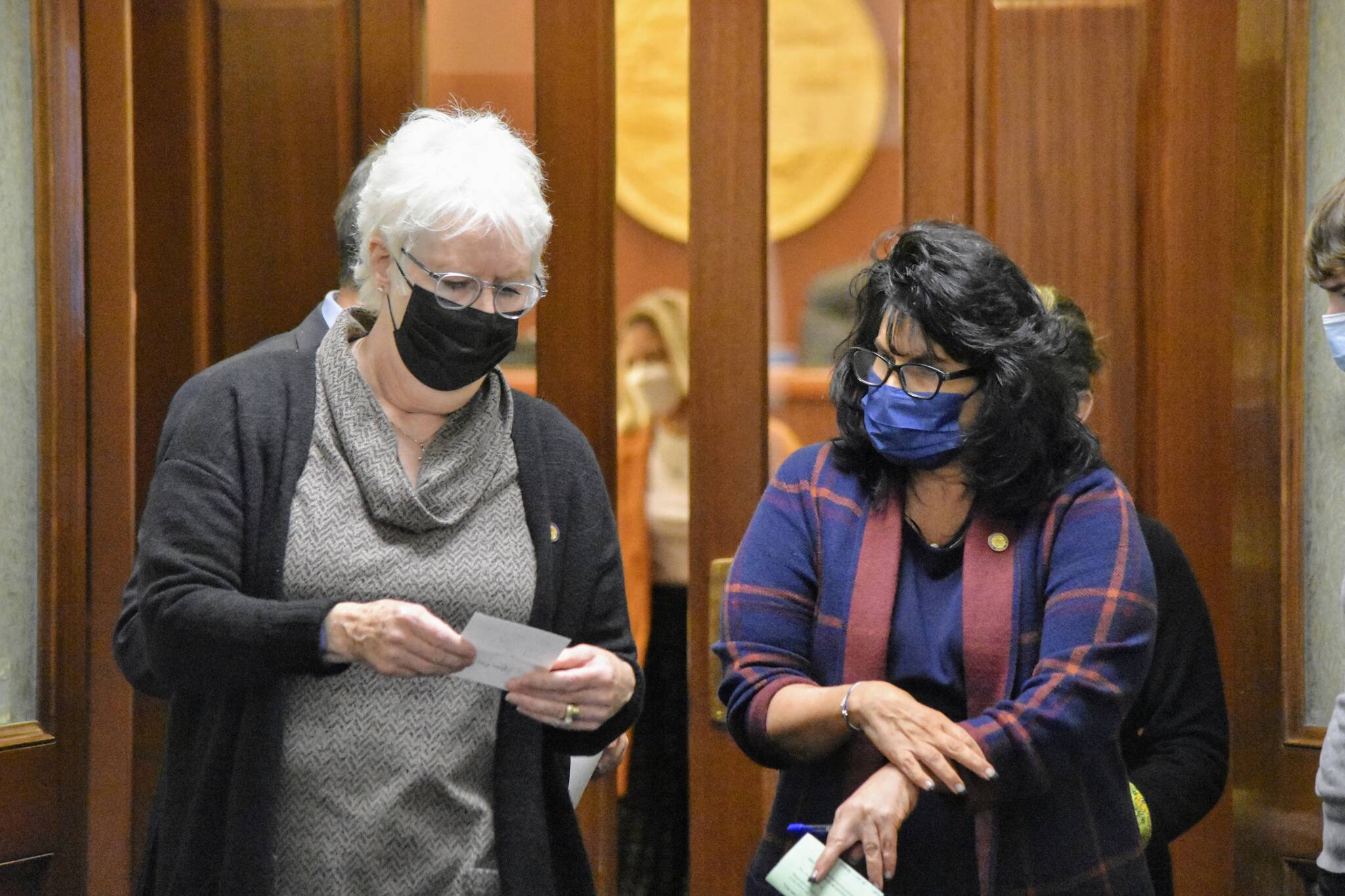This is a developing story.
The Alaska State Legislature got off to a slow start Monday with both chamber’s afternoon floor sessions delayed as lawmakers held closed-door caucus meetings.
Going into the evening Monday, lawmakers were still negotiating a resolution that would allow them to hold remote committee meetings from legislative information offices around the state, namely Anchorage. Any votes on legislation would have to take place in Juneau.
Members of all the legislative caucuses were in town Monday, though several members were excused from the House of Representatives for several weeks. Rep. Andi Story, D-Juneau, was excused until Oct. 25.
Gov. Mike Dunleavy brought lawmakers to Juneau to try to resolve the state’s long-term fiscal problems, but the Legislature remains deeply divided on how to do that. A working group tasked with finding a resolution to the state’s fiscal deficit identified several areas for lawmakers to work towards but didn’t provide specific policy recommendations.
[Bartlett Hospital services are stable]
The group recommended four areas for lawmakers to address — new revenues, additional cuts, a guarantee for the Permanent Fund Dividend and combining the accounts of the Alaska Permanent Fund into one large account.
The group’s report recommends lawmakers pursue additional revenues of between $500-755 million but does not say where those revenues should come from. The report also recommends additional cuts of $25-200 million but similarly does not recommend where those cuts should be made.
The workgroup was more unanimous in its support for combining the two accounts of the permanent fund into a single fund and using a percent of market value draw from the enlarged account. The group also recommended paying a PFD that was 50% of that draw as a way of guaranteeing a dividend.
“Lawmakers have largely accepted the conclusions put forward by the fiscal policy working group,” said Senate Minority Leader Tom Begich, D-Anchorage, Monday in an interview with the Empire, which was more agreement than had existed in the past.
Begich said this session likely wouldn’t produce any substantive pieces of legislation but would set lawmakers up for a more effective regular session in January. Lawmakers have largely accepted the conclusions put forward by the fiscal policy working group, Begich said Monday in an interview with the Empire, which was more agreement than had existed in the past.
“This is the first time we have all four elements on the table,” Begich said. “(Lawmakers) generally agreed that this is the framework, this plan represents a framework.”
But there’s been little agreement on how to build on that framework. Some lawmakers introduced legislation during the last special session for things like new taxes for revenues and a spending limit, but those bills haven’t moved very far through the legislative process.
• Contact reporter Peter Segall at psegall@juneauempire.com. Follow him on Twitter at @SegallJnuEmpire.

